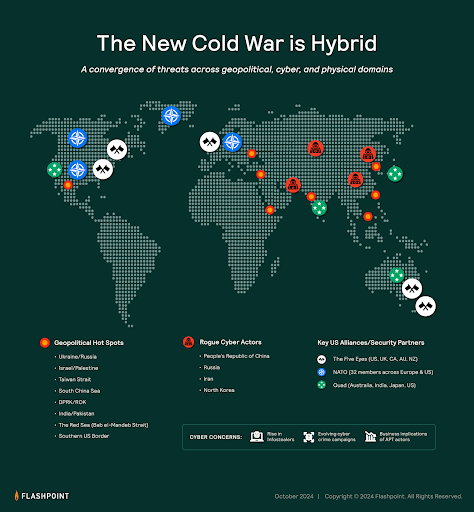In a coordinated effort to combat Russian cyber espionage, the U.S. Department of Justice and Microsoft’s Digital Crimes Unit recently disrupted a sophisticated spear-phishing campaign orchestrated by Star Blizzard (AKA Callisto, BlueCharlie, COLDRIVER, GOSSAMER BEAR, Reuse Team, SEABORGIUM, Star Blizzard, TA446), a hacking group linked to Russia’s Federal Security Service (FSB). In total, US law enforcement and Microsoft seized 107 internet domains linked to Star Blizzard.
Star Blizzard’s Spear-Phishing Tactics
Using sophisticated spear-phishing tactics, Star Blizzard targeted Western think tanks, journalists, and military officials. The phishing links appeared to come from trusted sources, tricking victims into revealing sensitive information and accessing internal systems. Microsoft reported that the group conducted extensive research on its victims to infiltrate their systems for information theft.
The targets of this campaign included:
- U.S.-based companies
- Former employees of the U.S. Intelligence Community
- Current and former Department of Defense and Department of State employees
- Military defense contractors
- Department of Energy staff
U.S. law enforcement have also emphasized the advanced persistent threat group’s adaptability, highlighting the group’s ability to modify tactics and infrastructure to evade detection. While the takedowns of Star Blizzard’s associated domains has disrupted their immediate operations, authorities have emphasized the continuance of Russian cybersecurity threats.
A Persistent Threat: The New Cold War
Star Blizzard’s association with the FSB exemplifies a growing reality in today’s “New Cold War,” where cyber and geopolitical threats are converging on an unprecedented scale. In this new era, state actors like Russia, China, Iran, and North Korea exploit the digital realm to extend their geopolitical influence, blurring the lines between cybercrime and state-sponsored operations.
Unlike the Cold War of the 20th century, today’s battles are fought in cyberspace. These nation-states deploy advanced cyber espionage campaigns, disrupt critical infrastructure, and launch disinformation operations aimed at influencing public opinion—all while maintaining plausible deniability. This hybrid warfare enables them to strike from the shadows, destabilizing businesses and governments without overt military action.
The “New Cold War” forces organizations to rethink their approach to cybersecurity. Traditional defenses are no longer enough to protect against nation-state actors using tactics that span both digital and physical domains. This convergence of threats—from phishing to influence operations—demands a more integrated, adaptive strategy that combines cyber threat intelligence, geopolitical awareness, and proactive defense measures.
In this ongoing conflict, the need for vigilance has never been greater. Organizations must be prepared to defend against an adversary that continuously evolves, adapts, and escalates its tactics. As Star Blizzard demonstrates, this new breed of cyber threat doesn’t just target data—they target entire industries, economies, and public trust. In the New Cold War, the battlefield is everywhere, and no organization can afford to sit on the sidelines.

The Importance of Threat Intelligence
Though the recent takedown of over 100 domain names is a significant blow to Star Blizzard’s operations, there are still lingering concerns regarding the group’s adaptability and persistence. To effectively counter threat actor groups and evolving attacks, organizations need to leverage best-in-class threat intelligence.
Using actionable intelligence, security teams are empowered to adapt their strategies, anticipate new attack vectors, and proactively defend against evolving tactics. Sign up for a demo today.


